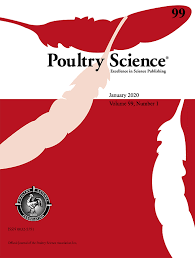Document type : article published in Réussir Volailles
Author: Laura Warin
Preview: Poultry adapt better to their environment and have a better quality of life if they can express their full range of behaviors.
Feeding and drinking have a direct effect on the survival of poultry. However, good health, adequate growth and the absence of injury are not enough to ensure the good welfare of chickens. There are other inherited behaviours, though, that are equally important and are either less well-known or are not taken into consideration. These allow chickens to feel safe, understand their living environments and experience positive emotions. If birds are not allowed to express these behaviors, this can lead to negative emotions, such as frustration, and will negatively impact their welfare.
For this reason it is essential for farms to be properly designed and equipped.
The observation and understanding of chicken behavior is also a way to detect welfare problems early on. And these measures make it possible to communicate on farming with the general public and the media in a positive way .
A team of eleven scientists working on animal welfare issues have identified the behavioral needs described in this article.
Article outline:
1 - Exploring
2 - Moving around
3 - Grooming and dustbaths
4 - Resting/perching
5 - Stretching
6 - Interacting/playing
7 - Sunbathing






